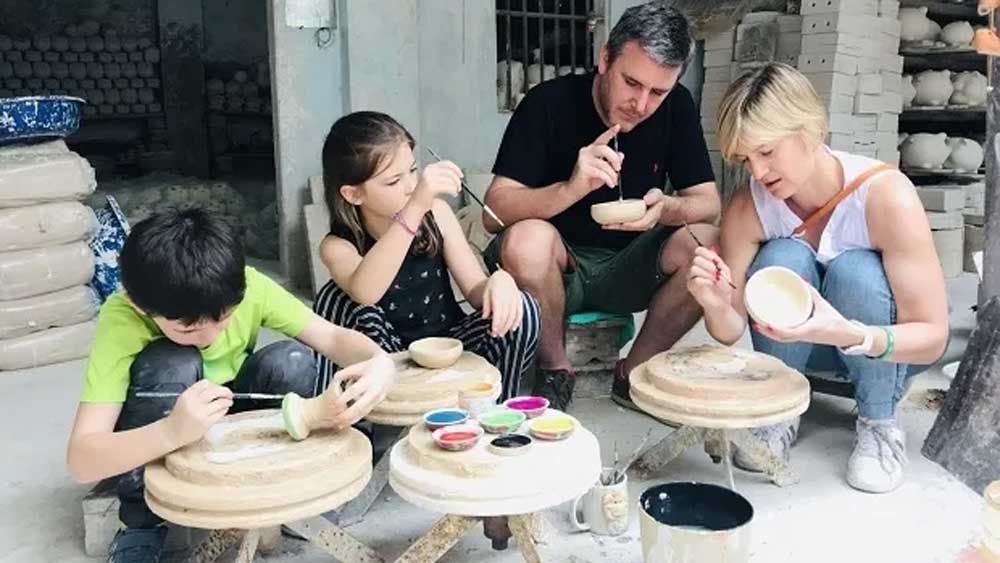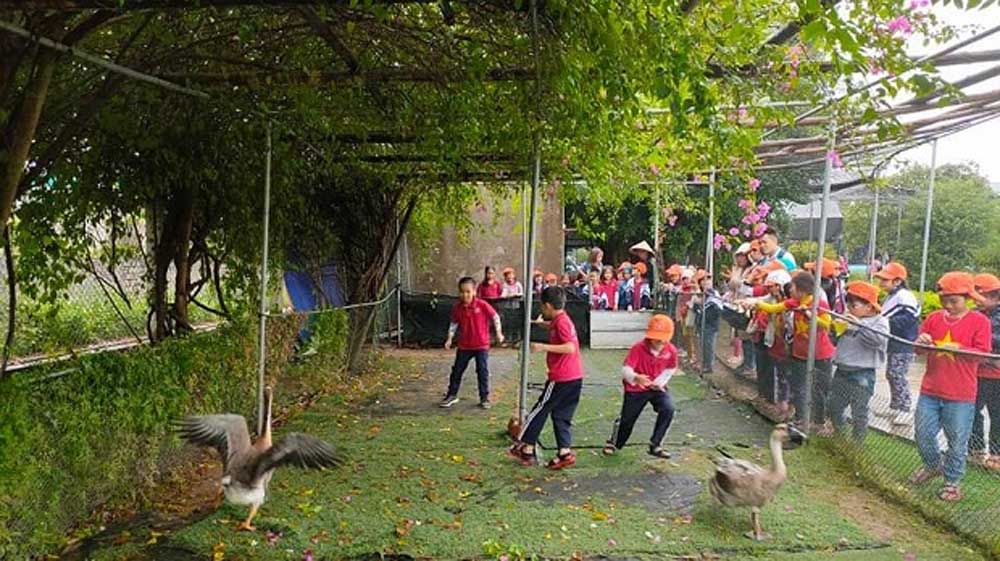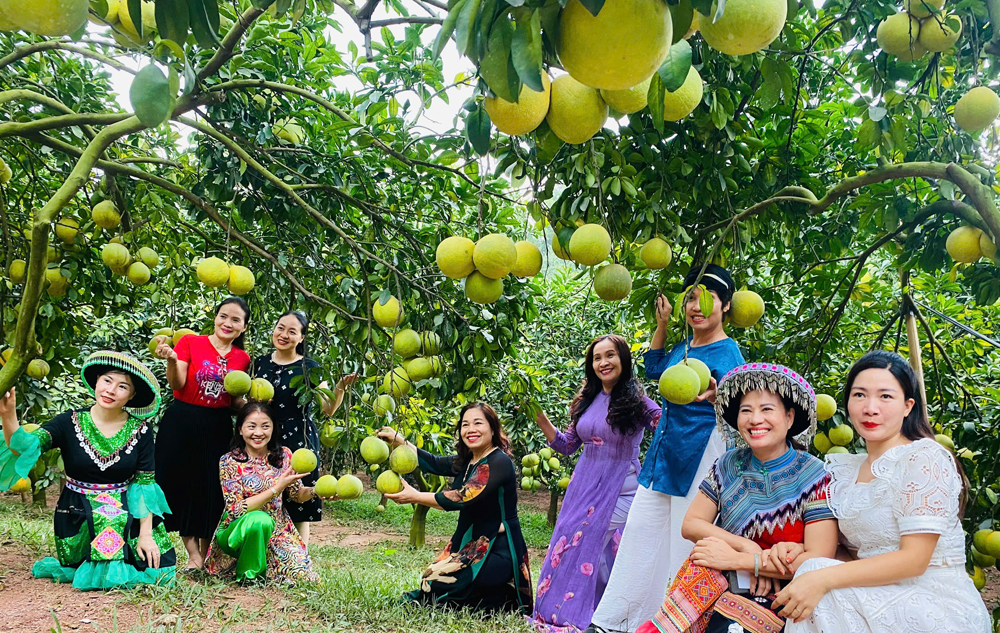Hanoi integrates agriculture and craft villages with tourism development
 |
|
Foreigners colouring pottery products at Bat Trang village, Gia Lam district, Hanoi. |
Currently, Hanoi is offering agritourism products such as tours to rural villages, farms, vegetable gardens, and ecological tourist sites, allowing visitors to get an insight into local culture and people’s daily lives.
More than 10 villages in the city has been approved to join a project on developing tourism based on craft villages, including Bat Trang pottery village, Van Phuc silk village, Phu Vinh bamboo and rattan weaving village, Quat Dong embroidery village, and Chuyen My pearl inlay village.
Accordingly, visitors to these villages can not only admire the idyllic beauty of the Tonkin region but are also invited to try their hands at the making of each village’s typical products.
Developing eco-agriculture alongside tourism has been carried out in most of localities across Hanoi city. For example, an agri tourism farm has been put into operation in the Ba Vi outskirts, connecting local farm owners and traditional craft villages in inviting visitors to join various rural activities such as transplanting rice, catching fish, harvesting vegetables, collecting honey, and feeding goats, rabbits, and dairy cows.
De Trang (White Goat) Farm, another successful agritourism site in Ba Vi district, attracted thousands of visitors in 2019 thanks to its assorted farm activities and tourist services.
Taking advantage of being located in the largest tea-growing area of Ba Vi district, Ba Trai agricultural collective has focused on developing community-based tourism, allowing visitors to learn more about the tea growing, processing and manufacturing process whilst advertising the brand of ‘Ba Trai tea’ to customers.
In Thuong Tin district, more agricultural farms and villages are now open for visitors, including the two-hectare Viet Village Farm, which received tens of thousands of visitors last year, and 3.6 hectare-Hong Van Collective, which grows flowers and ornamental trees.
 |
|
Schoolchildren taking part in outdoor activities at VietVillage - an eco-agriculture production farm offering tourism services in Hong Van Commune, Thuong Tin District, Hanoi. |
Meanwhile, owners of fruit and vegetable gardens in Phuc Tho district have worked together to launch ecological tours, which help them to earn extra income and marketing their agricultural products to visitors.
It can be said that developing tourism based on agriculture and craft villages has shown its efficiency in increasing people’s income and promoting local specialties. However, the development of eco-agriculture, particularly eco-agriculture associated with tourism, has seen certain shortcomings, which stem from the lack of due attention to brand identification, the building of tourist products and services, and the limited human resources for eco-agriculture tourism.
In the coming time, the Hanoi city authorities will develop agricultural production models which apply high technologies, which are expected to go hand in hand with tourism. More detailed surveys and research will also be carried out to review agritourism activities in the city, thus working out sound policies and mechanisms to facilitate this.
In addition, the city plans to open training courses on combining agriculture and craft villages with tourist activities for those working in the field.
Source: NDO
 Bắc giang
Bắc giang















Reader's comments (0)